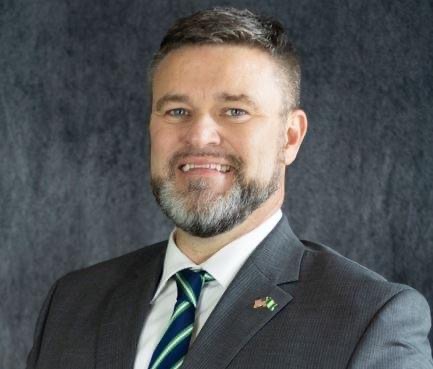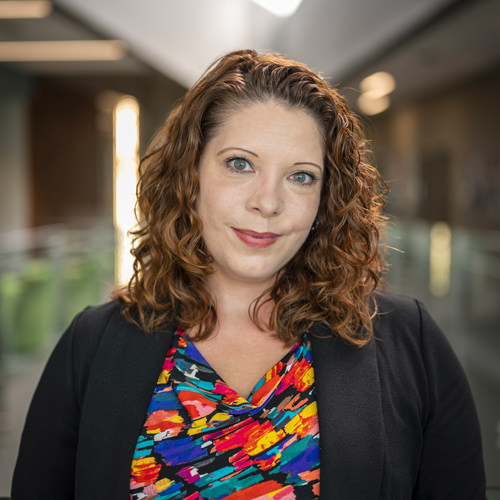Bridging the Equity Gap in Higher Education
This event has ended.

Bridging the Equity Gap in Higher Education
This event has ended.
Build equity on your campus by focusing on retention and completion for historically marginalized students.
Event Information
Students of color, first-generation students, and low-income students typically encounter the most barriers to retention and graduation at institutions. Research shows that low-income students are less likely to return to campus after the summer, that first-generation students are less likely to graduate on time, and that Black and Latinx students are more likely to enroll part-time in college or take time away from their degrees. As universities navigate increased diversity in admissions, faculty and staff must focus on new efforts to retain and graduate undergraduate students from historically marginalized populations. Unfortunately, equity gaps in retention and completion often show that current practices are not enough to create an environment of support for historically marginalized and first-generation students.
Join us for this two-day virtual conference to discuss best practices for closing the equity gap in higher education. You will have the opportunity to hear from experts on how to break down siloes, how to use pre-college programs, and how to educate faculty and staff across campus to drive student success. You will also be able to network and plan with other faculty and staff who are initiating or continuing efforts to retain and complete students from historically marginalized groups on their campuses.
Who should attend?
This event is designed for higher education professionals and committees charged with improving retention or student success—which may include enrollment managers, student and academic affairs leaders, and assessment coordinators. Additionally, any faculty or staff interested in initiating or continuing efforts to close the equity gap at their institutions will benefit, as well. The conference will provide valuable content for leadership and frontline staff alike.
Agenda
(All Times Eastern)
Welcome & Introductions
11:00 – 11:15 a.m. ET
Identifying the Gaps in Retention and Completion on Your Campus
11:15 a.m. – 12:00 p.m. ET
This opening session will help you to figure out the students on your campus who face barriers to retention and graduation. You’ll learn where to find data and what data to look for in order to dig deeper into the student population. You’ll also gain understanding on why it is important to connect your data directly to the individual student experience.
Educating Faculty & Staff Across Campus
12:00 – 1:00 p.m. ET
Faculty and staff across campus are often connected with different groups of students, and they may be the first (or only) people on campus a student feels comfortable sharing with. Ensuring that your frontline faculty and staff share the same messages and know what resources are available to students is essential to making sure that students don’t get lost in the bureaucracy of your institution. In this session, you’ll examine how to educate faculty and staff on sharing the same messages and resources across the institution.
Break
1:00 – 1:30 p.m. ET
Pre-College Programs and Student Success
1:30 – 2:30 p.m. ET
Now that you understand how to identify those students on your campus who may face barriers to graduation and retention, as well as ways to fund new initiatives and who to educate on the equity gap, you should now begin to apply best practices before and during college to close the equity gap. Our expert speaker will discuss how pre-collegiate programs can be used to successfully orient students to campus, as well as how they can help them to create meaningful connections before the academic year starts. You’ll take away useful ideas about how to start small and then expand your programs to encompass a more diverse range of students.
Break
2:30 – 2:45 p.m. ET
Working Session: Planning for Pre-College and Education Interventions
2:45 – 3:30 p.m. ET
Here, we’ll focus on the interventions shared on day one of the conference. This session will be geared toward helping you to plan your next step for educating others on your campus about the equity gap. We’ll also include time for you to identify one thing you can do before the academic year starts in order to connect with students who may face additional barriers. You’ll work in groups to discuss and refine your next steps.
Day 1 Wrap-Up
3:30 – 4:00 p.m. ET
As we conclude our first day together, you will have an opportunity to ask questions of the speakers and connect with other attendees around shared challenges and opportunities.
(All Times Eastern)
Optional Networking Session
11:00 – 11:15 a.m. ET
You’ll have the opportunity to meet with the speakers and other attendees of the conference and share your ideas about how to move forward.
Day 2 Opening Remarks
11:15 – 11:30 a.m. ET
Developing Community Partnerships to Support Your Work
11:30 a.m. – 12:15 p.m. ET
In this session, our expert speaker will focus on the importance of developing resources outside the institution to assist you with equitably managing student retention and completion. Institutions have limited resources and staff, so working with a community partner can help to guide and enhance your efforts. You’ll learn examples of partnerships developed by other institutions, and how those have worked to support their overall retention efforts—as well as the needs of individual students.
Building a Network of High-Touch Student Support
12:15 – 1:00 p.m. ET
Ensuring that students are supported proactively is one of the most effective ways to minimize the impact of barriers and create a sense of belonging for students on your campus. Students from historically marginalized or first-generation backgrounds may not feel comfortable reaching out to ask questions—or they may not know who to reach out to. Our expert speaker will discuss how creating a high-touch network of student support, including advising, success coaching, and demystifying offices, is key to students’ development of connections on campus. You’ll also learn ways to create that high-touch network with limited staffing resources.
Break
1:00 – 1:30 p.m. ET
Interventions in Direct Student Support
1:30 – 2:15 p.m. ET
While all students can encounter financial pressures and emergencies in college, students from historically marginalized communities are less likely to have family support to fall back on in those circumstances. Small financial or basic-needs interventions, like micro grants or food pantries on campus, are vital for helping students persist at your institution. In this session, you’ll learn how institutions can creatively deploy resources intermittently to the students who need aid. You’ll also learn about how academic-focused support goes hand in hand with financial or basic-needs interventions.
Break
2:15 – 2:30 p.m. ET
Securing Funding Opportunities for New Initiatives
2:30 – 3:15 p.m. ET
While there are many interventions that all faculty and staff can participate in to close the equity gap, some best practices require institutions to devote financial or staffing resources. During this session, you’ll be able to find potential available options for seeking funding from organizations outside your institution. You’ll also brainstorm where existing resources may already be available on campus to assist you in creating new initiatives.
Working Session: Planning for Interventions During College
3:15 – 3:45 p.m. ET
During this working session, we’ll focus on creating next steps for the interventions shared on day two of the conference. In small groups, you’ll work to identify what you can first do to create or expand high-touch student support at your institution. You’ll also have the opportunity to brainstorm ways to directly intervene in a student’s journey throughout the year with financial or other resources. Finally, you’ll have a chance to share any community partnerships you have developed at your institution as a preview for the closing session of the conference.
Conference Wrap-Up & Evaluations
3:45 – 4:00 p.m. ET
Can’t attend the conference? Buy the binder.




